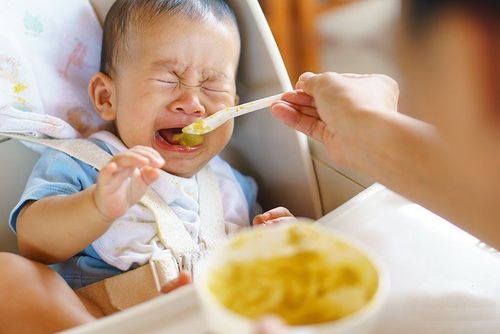Nội dung bạn đang tìm kiếm không có phiên bản tiếng Việt.
Vui lòng chọn tiếp tục để xem nội dung tiếng Anh hoặc đi đến trang chủ Tiếng Việt.
Rất xin lỗi về sự bất tiện này.
Pediatrics


What are the health consequences for children not eating vegetables?
Most parents struggle to persuade their children to eat vegetables. It is common for children to refuse vegetables, especially during the early stages of introducing solids. If children do not consume vegetables over a prolonged period, it can lead to several health consequences.
View more

What to Do When a 1-Month-Old Baby Cries at Night
When babies are born, they typically sleep up to 20 hours a day. However, after a few weeks, they may stay awake and cry for several hours. It is very common for a 1-month-old baby to cry at night. Here are some insights and tips for dealing with nighttime crying.
View more
Latest articles

Why are babies lazy to breastfeed?
In the first years of life, breast milk is an essential source of nutrition for the development of children. In fact, there are many cases where children are lazy to breastfeed, making parents very worried about their children's health. To have effective measures for this situation, it is necessary to find out the cause and have appropriate methods for children.
View more

Is anal fissure in children a cause for concern?
Anal fissure in children is a common condition in children from 6 to 24 months old, less common in older children. The disease often makes children uncomfortable because anal fissures cause pain and bleeding, but most cases are self-healing and can be treated at home. If the symptoms do not improve or the fissure does not heal for a long time, it can become chronic, so parents need to take their children to see doctors and receive care under their guidance.
View more

Development of a 13-week-old baby
At the 13-week-old stage, babies are always cheerful and ready to engage in games, conversations, or any form of interaction with those around them. Parents should prepare and help their babies experience endless laughter during this phase.
View more

Your daughter is 11 years old: What you and your daughter need to know
Some 11-year-old girls are going through a period of rapid physical development and puberty. Therefore, during this period, children will have many changes, both physically and psychologically. So what should parents do to help their children develop best?
View more

How Much Weight Should an Infant Gain in 2 Months?
Parents may wonder if their infant is growing normally. While healthy infants can vary in size, growth patterns tend to be consistent. During routine checkups, the doctor will assess the baby’s height, weight, and age to determine if their growth is on track.
View more

Is an 11-month-old baby weighing 8kg malnourished?
As the first birthday approaches, an 11-month-old baby certainly has many differences from when they were born. Along with the development of basic skills, the baby's weight and height need to be monitored, especially before the milestone of the first birthday, to ensure the optimal development in the first year of life.
View more

What to do when babies refuse to eat while teething?
Babies starting at 6 months of age enter the teething phase, which can cause irritability, fever, loss of appetite, and even weight loss. For parents, each mealtime becomes not just a concern but a source of anxiety. So, what should parents do when their teething baby refuses to eat?
View more

Is it good for children to eat a lot of sweet potatoes?
Sweet potatoes are a familiar, necessary, and nutritious food for children, especially in the weaning period. Sweet potatoes provide nutrients as well as vitamins and minerals that are good for the children
View more

